![IMG_7062[1]](https://www.elanthemag.com/wp-content/uploads/2015/01/IMG_70621-1024x682.jpg) “Know your history, know your roots and then you will know who you truly are.”
“Know your history, know your roots and then you will know who you truly are.”
Beginning his artistic journey at the age of twelve, Tunisian calligraphy artist Karim Jabbari’s words certainly echo through his work as he seeks to create pieces that serve as “a reminder of where he came from and what he left behind.”
Born in Tunisia, this Montreal-based artist started practicing calligraphy to escape the harsh reality of a difficult childhood and express what he could not in words. Starting out as a calligraphy artist, Jabbari now works in the field of modern calligraphy and street art. Today, he is one of the most respected light graff and calligraphy artists in the world.
Developing his own abstract form of calligraphy, Jabbari produces breathtaking calligraphy that appear to hang in space using just a DSLR camera, a flashlight and a dark setting. While it may seem like a digitally modified illusion, these unique works of art are actually Jabbari’s careful and purposeful movements caught on a long-exposure camera shot.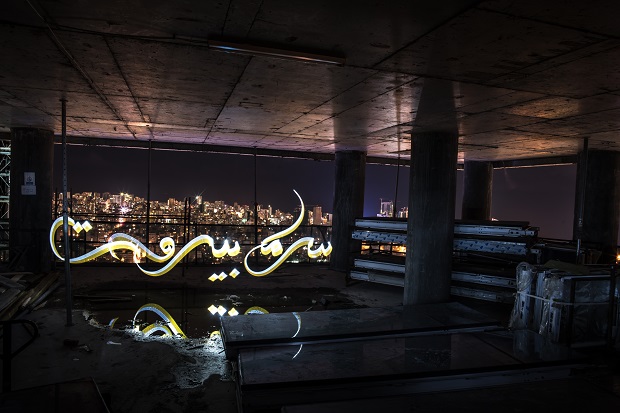
His latest project with Land Rover’s #MyLand initiative, Ardhi in Arabic, explores how the oldest forms of Arabic calligraphy – Classic Kufi and Maghrebi calligraphy – influenced his own artistic evolution and work. The campaign features individuals from around the Middle East who are “helping to push the region into a future rich in the culture and heritage of its past.”
We had a chance to chat with this innovative artist about the impact of his culture and heritage on his entrepreneurial spirit and work as an artist.
Elan: Tell me about your journey as an artist so far. What made you decide to get into the art world?
Karim Jabbari: I was 12 years old when I started practicing calligraphy. It was a very hard period for me as my father was in jail for 13 years for being a political prisoner and we, as a family, were living in some extremely painful conditions. As a child, I faced terrible loneliness and the practice of calligraphy helped me overcome these harsh times.
The impact of that passion on my life as a kid was huge. It was my best friend, and in certain moments when I missed my father, I grabbed my sketchbook to get away from the hard reality I couldn’t handle as a kid.
I left Tunisia at the age of 20 for Canada. That’s where I realized how calligraphy linked me back to my roots. I felt I had a debt towards it and I needed to take it to another level by adding some urban elements to it like graffiti, light calligraphy and calligraphy clothing.
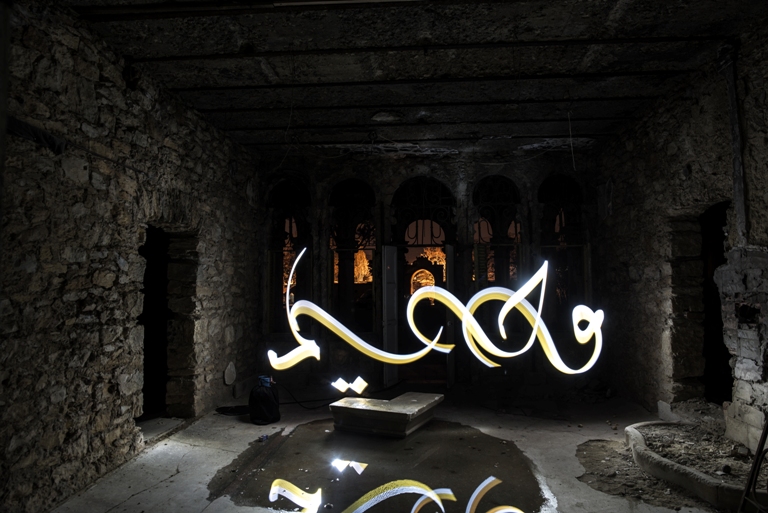 Elan: Does your home country and culture influence a lot of your work today?
Elan: Does your home country and culture influence a lot of your work today?
Karim Jabbari: It’s my anchor point, my inspiration, my shelter. I consider myself as a voice of my country and an ambassador to show the beauty behind the Arabic and Islamic culture.
Elan: The art of calligraphy has a rich history, culture and traditions behind it. What message do you want your audience to take away from your work?
Karim Jabbari: Most of my work has a deeper meaning to try to bring people closer to the Arabic and Islamic world’s rich history.
To do that, I have chosen to work with the old Kufi and the Maghrebi calligraphy styles. These are very old forms of calligraphy and make me feel closer to my Tunisian and North African roots. While practicing these styles, you can feel them talk to you. This practice tends to scratch your curiosity and push you to learn more about them and dig deeper into your history.
Elan: What made you decide to make the move from print to light calligraphy?
Karim Jabbari: I was always in the quest of applying new elements to Arabic calligraphy that are more urban and developed, so that younger audiences also find an interest in the art of calligraphy.
Light painting is an old technique and was used by so many artists to create various abstract artworks. I was impressed by this technique and decided to apply it to the Arabic calligraphy using only one color at a time, so I let the beauty of the letters speaks for itself.
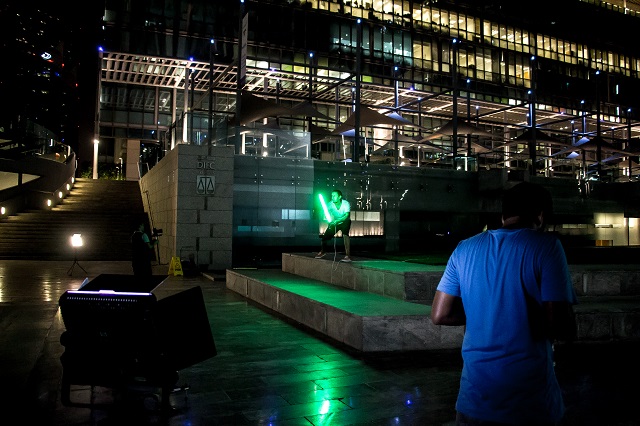 Elan: Tell me about the LandRover #MyLand project. Why is it important to you?
Elan: Tell me about the LandRover #MyLand project. Why is it important to you?
This project was discussed over long weeks and it was certain that Land Rover wanted the touch of Karim Jabbari. They gave me the freedom to express how I see their brand and highlight the common link between the old art of calligraphy and how a pure-blood car brand that has proved over the decades that it’s getting better with time – maybe like calligraphy?
I was in Dubai working on the project with an amazing team of creative people. We were driving the Land Rover LR4 in the desert and all around the city. Every time I get out of the car, I get this particular feeling that helps me control every brush stroke and light movement. Every one of my artworks are driven by a different energy, a different spirit, that makes them unique.
You can watch the #MY LAND light calligraphy project in the desert over and over and get a blast of these sensations every time. It’s the same sensation you get every time you drive a Land Rover in the desert. Such collaborations are very important to me because they represent the recognition of long and sometimes painful years of hard work to reach a certain artistic status. They are proof that my art is reaching new boundaries of creativity and this gives me the energy to keep moving forward.
Elan: Graffiti used to come with a negative connotation attached to it. Now, it has been seen as a microphone for the voice and sentiment of people in revolutions, particularly during and post-Arab Spring. What are your thoughts on that?
Karim Jabbari: Talking about Tunisia, there is an enormous negative way of thinking amongst the majority of Tunisians. I do believe in positive thinking, I’m always aiming high and conquering new terrains to apply my art.
One of my goals is to help bring change through art, especially graffiti, and help local talent in the country find a way to express themselves through several artistic platforms like ‘Streets Urban Festival’ – an event I launched in Kasserine, one of the poorest cities in Tunisia, in December 2013.
Art in Tunisia needs to be democratized and decentralized. That’s the only way we can give an equal chance to every creative mind in the country to contribute and build a brighter future for the art scene in Tunisia. For that, I do believe that graffiti and any form of art can elevate our way of thinking, our vision of our society, our vision of the future.
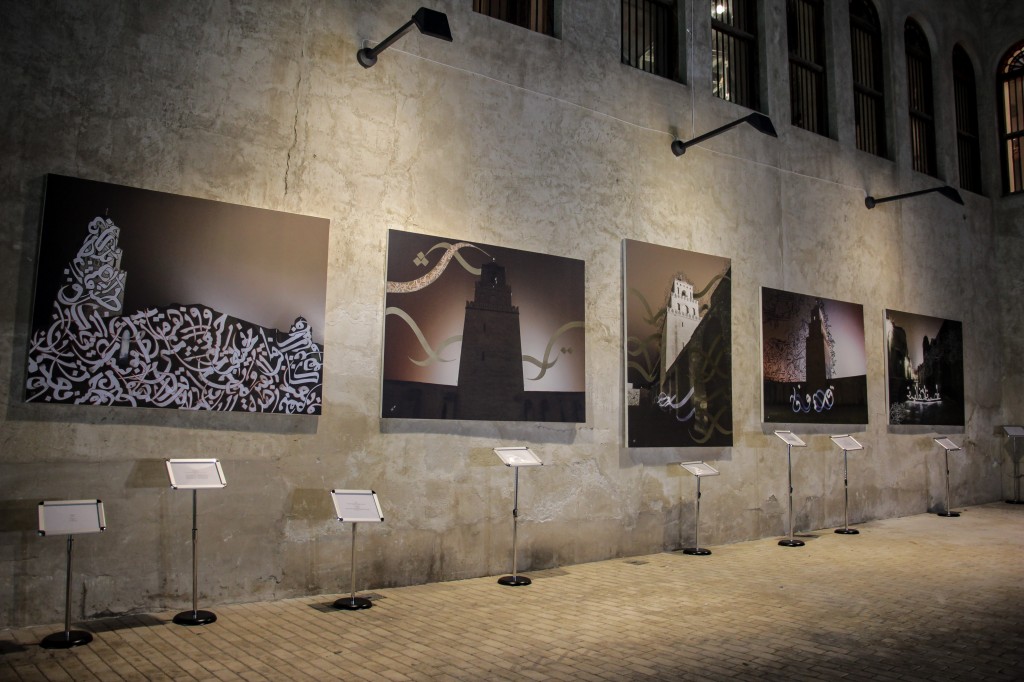 Elan: Tell us about the response you received for your work so far?
Elan: Tell us about the response you received for your work so far?
My work as a calligraphy and street artist is allowing me to share widely my experience and my knowledge. Positive feedback is the fuel that keep me advancing and negative ones help me improve myself and become a better person.
What’s next for you?
Right now I’m focusing on Streets Urban festival 2015 edition. I’m also working on my Lonely Child project, a new and unique concept. More details can soon be found on my website.
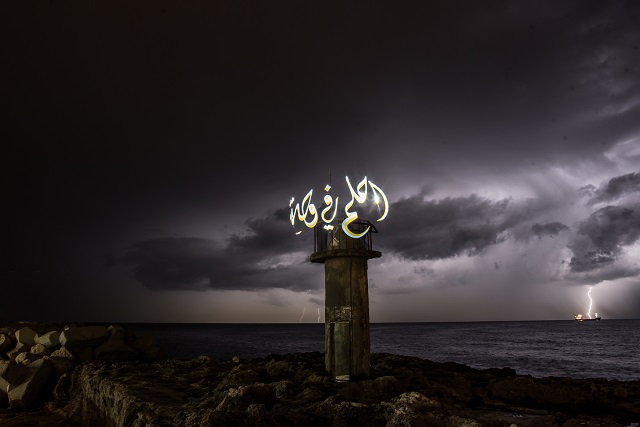

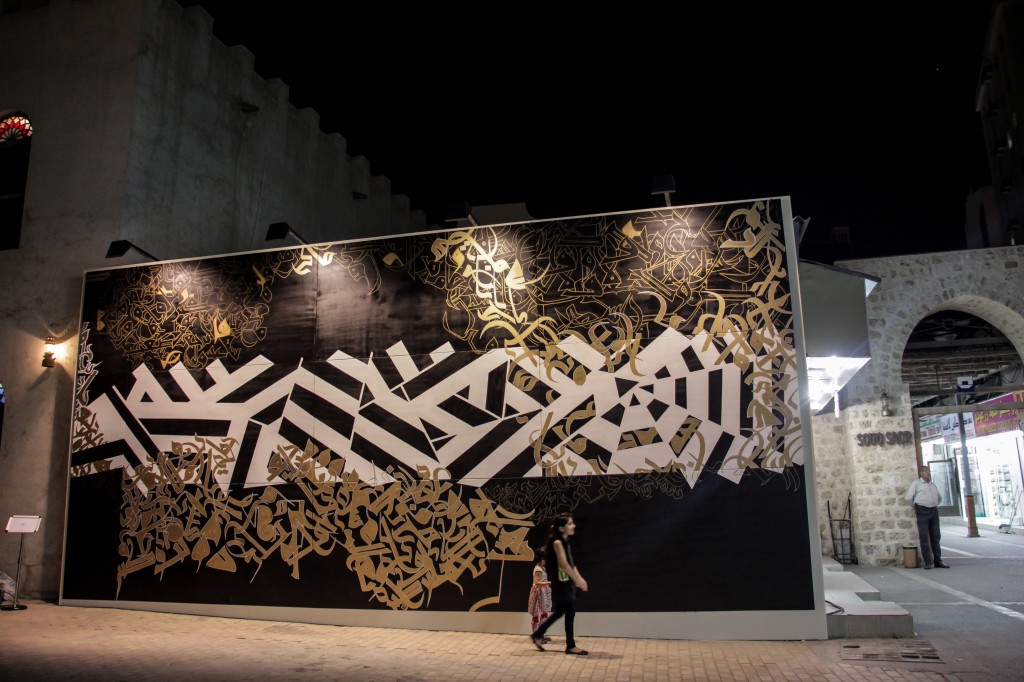


















AMAZING!